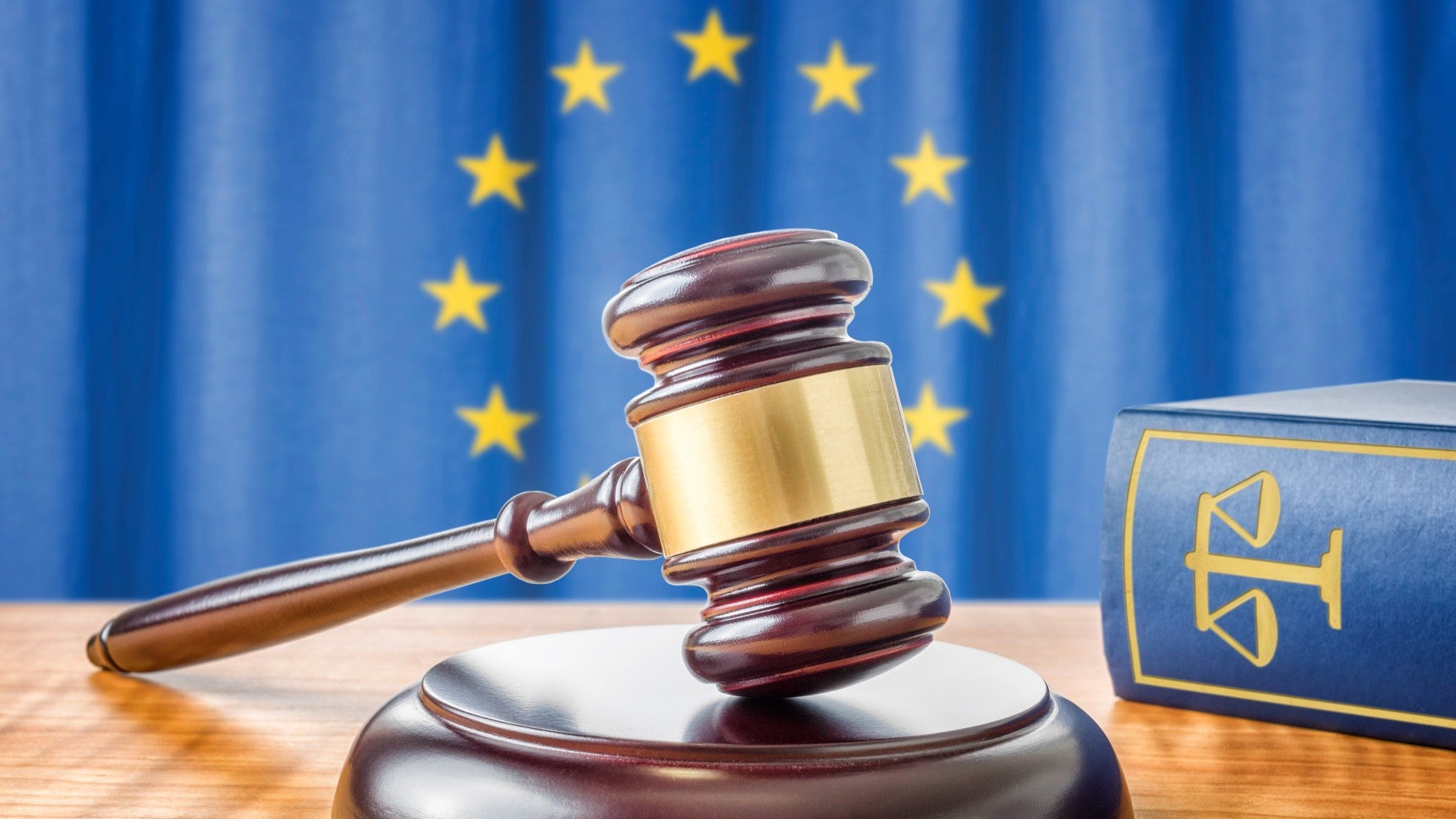[ad_1]

The EU reached a provisional settlement on stricter anti-money laundering (AML) laws final week (18 January) in a transfer that may deliver crypto-asset service suppliers (CASPs) additional in keeping with different monetary companies suppliers.
The legislation, if accredited by the European Parliament, would power CASPs and different money-handling establishments together with banks, casinos and actual property businesses to carry out checks on any transactions amounting to €1,000 ($1,087) or extra.
Following on from the 2023 introduction of the Markets in Crypto Property Regulation (MiCA), this laws cements the EU as a world chief within the regulation of cryptocurrencies and their suppliers. These elevated efforts come within the wake of fears over illicit makes use of of crypto, which made the news last year following an Israeli crackdown on cryptocurrency accounts it claimed had been linked to Hamas.
Martin Cheek, managing director of UK-based AML compliance agency SmartSearch summed up these fears to Digital Funds Worldwide: “The brand new anti-money laundering laws has the potential to have a major influence on the power for criminals to cover their cash laundering actions utilizing cryptocurrencies, and I welcome them absolutely, as a result of for too lengthy this business has not been regulated nicely sufficient.
“Whereas the modifications suggest tighter laws on the crypto business in comparison with different monetary establishments, I imagine it is going to solely deliver the business in keeping with different regulated industries like banking or gaming, because of the present accessibility and ease for criminals to make use of cryptocurrencies to launder cash.”
Does regulation damage the business?
Crypto suppliers have traditionally been vehemently against elevated scrutiny, with crypto influencer Preston Pysh arguing in Bitcoin that regulation decreasing privateness within the business would restrict “the potential and the very essence of Americans and builders inside this nation.”
Entry probably the most complete Firm Profiles
available on the market, powered by GlobalData. Save hours of analysis. Acquire aggressive edge.

Firm Profile – free
pattern
Thanks!
Your obtain e mail will arrive shortly
We’re assured concerning the
distinctive
high quality of our Firm Profiles. Nevertheless, we wish you to take advantage of
helpful
determination for what you are promoting, so we provide a free pattern which you can obtain by
submitting the beneath type
By GlobalData
Whereas this can be overstating the case, it’s true that crypto platforms aren’t the havens of fraudsters and criminals they’re typically made out to be, with some estimates showing that less than 0.2% of transactions are associated to legal exercise.
In mild of this, it’s potential that rising regulation to this diploma could have an outsized influence on the fledgling business regardless of its advantages.
Haydn Jones, Managing Director and World Head of Blockchain and Cryptocurrency Options in danger advisory agency Kroll instructed Digital Funds Worldwide: “The EU’s Anti-Cash Laundering Laws are designed to deliver crypto asset suppliers in keeping with credit score establishments by imposing comparable obligations. Nevertheless, the elevated due diligence required of crypto corporations has sparked debate over whether or not this actually ranges the enjoying subject.
“The crypto business now faces stricter necessities for low-value funds than conventional monetary corporations. That is central to a broader technique to fight cash laundering and sanctions evasion. These developments mirror the EU’s effort to make sure constant and thorough anti-money laundering measures throughout the bloc. But, the intensified scrutiny and the necessity for detailed buyer due diligence might pressure the operational capabilities of crypto service suppliers, notably smaller corporations or these new to the market.”
Till this level, the EU’s regulation doesn’t appear to have had a significant influence on its capability to draw CASPs.
Europe stays the second-largest marketplace for offers referring to cryptocurrency globally, although far behind North America, which is pushed by US offers. The implementation of this regulation could also be onerous within the brief time period, however corporations are clearly prepared to conform if it gives entry to the bloc.
Nothing to cover, nothing to worry
Whether it is certainly true {that a} minority of crypto transactions are fraudulent, the elevated readability of this laws might actually be a boon.
Marcin Zarakowski, common counsel and chief of employees at Bitcoin Affiliation for BSV instructed Digital Funds Worldwide: “The AML Bundle brings important advantages to the business. In precept, [it] adopts the precept of ‘technological neutrality’ (similar guidelines for similar dangers) and it’s anticipated that it’s going to set up harmonization of the procedures that the CASPs will observe, in keeping with those adopted by the standard monetary intermediaries.
“Regardless of the objections coming from some Digital Asset Service Suppliers who complain about lack of proportionality, the brand new AML Bundle is anticipated to profit the crypto-assets group. [This is because] banks, which have a fiduciary obligation to supply banking companies, now might be obliged to develop threat monitoring onboarding procedures to evaluate the riskiness of entities with direct or oblique publicity to crypto-assets. This was not the case thus far, and the consequence was that many of the tasks with crypto-asset publicity remained un-bankable.”
Marcin is an govt committee member at the BSV Association, the custodian of the BSV Bitcoin protocol and a supporter of crypto regulation.
GlobalData affiliate analyst Harry Swain agrees with him, saying: “Importantly, the European Parliament has reassured stakeholders that the regulatory measures don’t search to outlaw privacy-enhancing crypto applied sciences. In Could 2023, the EU Crypto Initiative referred to as on lawmakers to rethink deliberate restrictions on privateness instruments, advocating for a transparent distinction between prohibited nameless high-risk accounts and high-risk anonymising devices.
“The legislative course of, albeit advanced, has culminated in a sturdy regulatory package deal, addressing numerous points of crypto-related cash laundering dangers and reinforcing the EU’s dedication to sustaining monetary integrity within the evolving panorama of digital finance.”
[ad_2]
Source link




